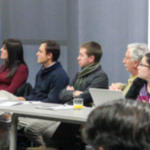Argentina faces a new opportunity to PCT entry
- 14 October 2016
- Articles
One of the most critical aspects in the field of patents is certainly territory. The applications used to protect the creations of inventors and pioneers are not specifically “universal” but instead, they must be filed in the states or regions where protection is sought. The omission of a timely and efficient filing may even result in the inability to claim that right in other parts of the world.
Consequently, the conventions signed by and between different states in this regard have become a useful tool for facilitating procedures and reducing costs. Argentina became a contracting party to the Paris Convention in 1966. This Convention allows inventors to locally file patent applications and grants them a one-year-grace period to replicate said application in any of the more than 170 contracting parties to the Convention. Even though this move represented an advancement at that moment, as time went by, the Convention proved still insufficient.
In light of the circumstances, a new system was born, which rapidly gained accessions and currently includes 151 states: the Patent Cooperation Treaty (PCT). It is worth noting that Argentina has not become a contracting state yet. This system, which emerged from the heart of the World Intellectual Property Organization (WIPO) in 1978, presupposes several advantages over those offered by the Convention, and, given the case Argentina decided to become a contracting state of it, it would also confer substantial benefits to Argentine inventor/pioneers.
On the one hand, filing a patent application in any of the contracting states would be equivalent to, in a first phase or “international phase”, filing the application in all the contracting states. This clearly simplifies and speeds up the procedure.
On the other hand, approximately within a term of twelve months, Applicants would receive an international search report and a written opinion on patentability of the invention, which would disclose the background related to the invention and similar projects. As a result, Applicants would be enabled to forecast more accurately whether their technological development/invention are actually patentable, and whether it is worthy to further the procedure.
Last but not least, the “national phase” entry, i.e., the term to file patent applications in other contracting states, would be extended to 30 or 31 months (depending on the state). Within that period, Applicants would gain a clearer perspective of the likelihood to commercially succeed (or not) with the invention, and arrive at better investment decisions, thus avoiding the huge cost stemming from processing useless applications.
There is great expectation for the prompt accession of Argentina to the PCT, and extensive current data allow us to look ahead to that future.
The new national administration has demonstrated, within these last ten months, its willingness to integrate into and open to a world which endorses international involvement and, it will surely find its way into IP cooperation treaties. The appointment of Dr. Dámaso A. Pardo as head of the National Institute of Industrial Property (INPI, by its Spanish acronym) has been a clear sign of that willingness and a deliberated move toward that result.
The time frame for achieving this is uncertain, given that the accession of Argentina to the Treaty is not merely a political decision. It requires consent from the National Congress and, to the date, no formal bills have been announced whatsoever in this regard. The path, however, is carved and has already been undertaken.







